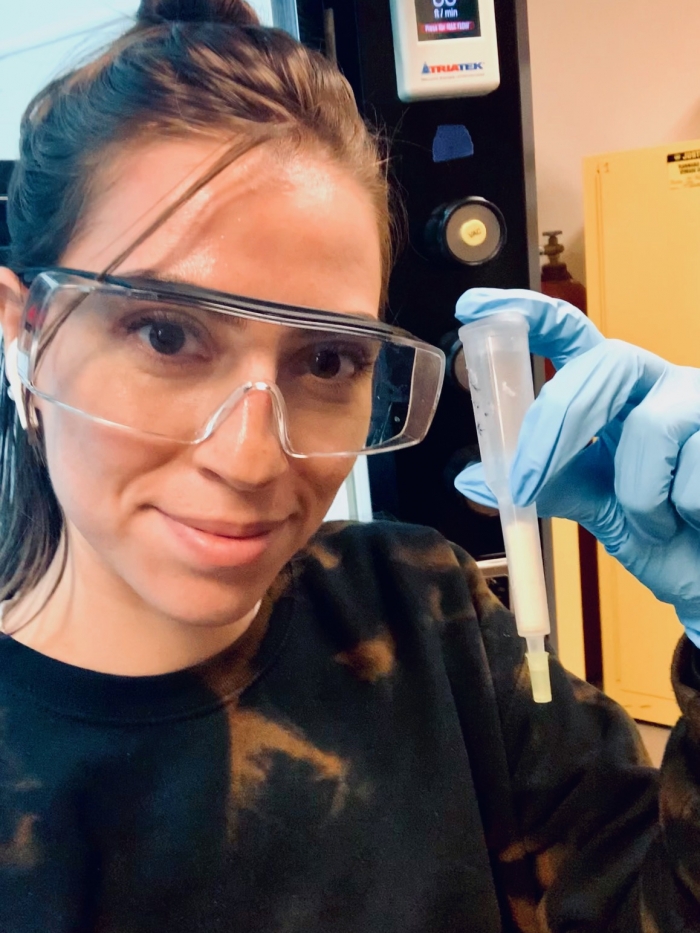SOAR Student Profiles

Maria Clark
- SOAR Position: Member; Alumni
- Major: Biochemistry
- Faculty Mentor(s): Dr. Kevin Bicker and Dr. Charles Chusuei
Current Focus: Synthesis and Characterization of the Therapeutic Potential of Antifungal Peptoid ß-5
Additional Interests: Blood Brain Barrier Permeability of Antifungal compounds
Project Description
Cryptococcus neoformans is a pathogenic yeast species that is one of the leading causes of Cryptococcal meningitis. This form of meningitis, which begins with the inhalation of yeast spores, has a significant mortality rate of 81% percent, with high incidence in those who are immunocompromised. Current antifungal treatments such as fluconazole and amphotericin B have detrimental side effects, leaving a significant need for better alternative treatments. Peptoids, which are mimics of the natural peptides found in living organisms, exhibit beneficial characteristics such as protease degradation evasion and therefore longer half-lives, offer an alternative route for antifungal compound development. Peptoid compounds discovered in our own lab, such as β-5, must be characterized by determining efficacy against pathogenic species such as C. neoformans as well as the toxicity of the compounds in the presence of mammalian cells. Herein, assays for determining these factors have shown that β-5 has low toxicity in several mammalian cell lines and significant and rapid inhibition of C. neoformans. These characteristics, which are linked to the compound’s structure, suggest that future investigation can focus on working to further enhance the compound’s overall efficacy through structural modification.Why does this topic interest you?
Treatments for patients at any level should aim to offer the most benefit and the least possible detriment to a patients health. As a researcher, it is therefore the goal to assess aspects that can be improved on to achieve this goal. In our case, this means focusing on the development of an antifungal compound that is effective while inducing minimal toxicity. This type of research epitomizes the overarching goal of science to continuously develop and improve as our understanding and knowledge of systems expands over time. Personally, the drive to keep seeking better alternatives is one of the greatest aspects of compound development research.What are your professional aspirations?
I currently plan to attend medical school after graduation, and ultimately specialize in neurodegenerative medicine and research. My experience with undergraduate research has helped me realize I want to continue doing research during medical school and as a component of my career as a physician. I believe building a background in research will allow me to develop research projects centered around the needs of my patients and subspecialty, in a more hands on capacity.Do you have any advice for future researchers?
No matter what your career goals are, what you think you might be interested in doing, TRY RESEARCH! Some people find out it is an aspect of education that is fascinating and exciting to be a part of during your undergraduate years. This can open up a lot of new pathways, and can maybe even help you narrow down what you might be interested in pursuing after graduation. On the other hand, it can be enlightening to find out that you don't see yourself wanting to do research as a significant part of your career in the future. I think this is equally as important to learn about yourself, as it can make a big impact on your career choices and finding something you enjoy doing. Overall, exploring this option during your undergraduate degree, where you have strong mentorships available as well as the support of fellow students in research is an amazing way to build your resume and explore your personal interests.


